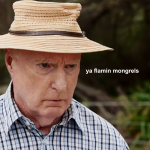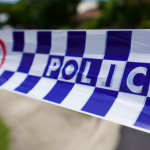
In a win for the turts, single-use plastic bags, straws and cutlery will be be banned in NSW by this time next year after the Plastics and Circular Economy Act 2021 passed NSW Parliament yesterday.
The plan was originally announced in June this year and will see lightweight plastic bags disappear on June 1, 2022, and single-use plastic straws, cutlery, stirrers, cotton buds, plates and bowls, and expanded polystyrene foodservice items gone on November 1, 2022.
On top of that, as of today Woolworths has removed single-use plastic cutlery, cups, bowls and plates from its shelves nationwide and has replaced them with picnicware made from sustainable wood or sugarcane pulp.
Approximately 130 million kilos of plastic waste pollute Australia’s marine environment every year, and this move by Woolies will eliminate approximately 2.1 million kilos annually.
NSW Minister for Energy and Environment Matt Kean also said single-use plastics make up 60 per cent of litter across the state because only 10 per cent of NSW’s plastic is recycled, and the government hopes its 20-year waste strategy will stop 2.7 billion single-use items from ending up in the natural environment.
Here comes the BUT.
While this is a great step by the government that follows similar bans already in SA, ACT and Queensland, the giant fkn mammoth in the room is the fact that plenty of NSW’s policies have shown and continue to show disregard for the state’s flora, fauna and landscape.
Allow us to refresh your memories with a snapshot of what’s gone down this year.
LAND CLEARING
In September 2021 a new Rural Boundary Clearing Code was added to NSW’s Rural Fire Act, making it legal for rural landholders to clear their land up to 25 metres from their property’s fence line without needing to seek approval. Basically any landowners can just start chopping down trees on their properties willy-nilly.
The code was promoted as helping to keep people safe from bushfires, despite the fact that such a thing never was never recommended by any of the inquiries into the 2019-20 megafires.
WWF Australia found that this could have a huge impact on critical koala habitat, which would make it harder for the threatened species to get around. Can these poor darlings catch a break?
On Saturday the NSW Govt quietly made it legal for rural landholders to clear up to 25 metres of bush from their boundary line, without an approval or assessment of ecological impact. Not recommended by the Bushfire Inquiry, not grounded in science. Slash and burn. #nswpol
— Chris Gambian (@chrisgambian) September 13, 2021
COAL
Almost 70% NSW’s electricity comes from coal. It has five coal-fired plants, and 40 black coal mines, making it one of the country’s two largest coal-producing states, alongside Queensland.
In April 2021, the New South Wales Independent Planning Commission approved the expansion of Glencore’s open cut Mangoola coal mine in the Upper Hunter Valley. The expansion allows a further 52 megatonnes of coal to be extracted and adds an additional eight years onto the mine’s lifespan.
Aside from the additional greenhouse gases, the project will cut down a lot of natural habitat and put biodiversity and species like the critically endangered regent honeyeater and the vulnerable grey-headed flying fox at risk.
And, extremely controversially, the replanting and regeneration of the mine site (a condition of its federal approval) will count towards the company’s offsets under a NSW policy to compensate for the loss of endangered habitat the project will cause. Basically New South Wales law allows mine pits to be used as offsets for the companies that literally dug the pit, because they will *eventually* create a new ecosystem on that site.
This environmental offset policy has been applied to other projects, but a parliamentary enquiry into the scheme this year revealed it fails to stop the decline of wildlife in some habitats.
The #RegentHoneyeater is one of Australia’s most #CriticallyEndangered birds. There are <350 birds left in the wild. For >20y, Taronga has been #ConservationBreeding an insurance population. Since 2008, >300 birds have been released to bolster wild populations. #ScienceWeek pic.twitter.com/CuXrOLuxFY
— Taronga Zoo (@tarongazoo) August 20, 2021
NATIVE LOGGING
Logging of native forests is also putting koalas, greater gliders, swift parrots and other native species at risk due to a loss of habitat. As species that rely on trees to eat, sleep and just basically exist, they will disappear with their habitats.
Only 9.5% of NSW’s land mass is formally protected in reserves, and 5 million hectares of land were burnt in the Black Summer fires, including including 30% of the state’s timber supply. Industry agencies have since been calling on the government to review and reduce commercial wood supply.
Genuine hats off to the NSW Government and Mr Kean for getting this single-use plastics ban through. It’s big. But if protecting the natural environment and our native species is their thing, they could be doing a hell of a lot more.



